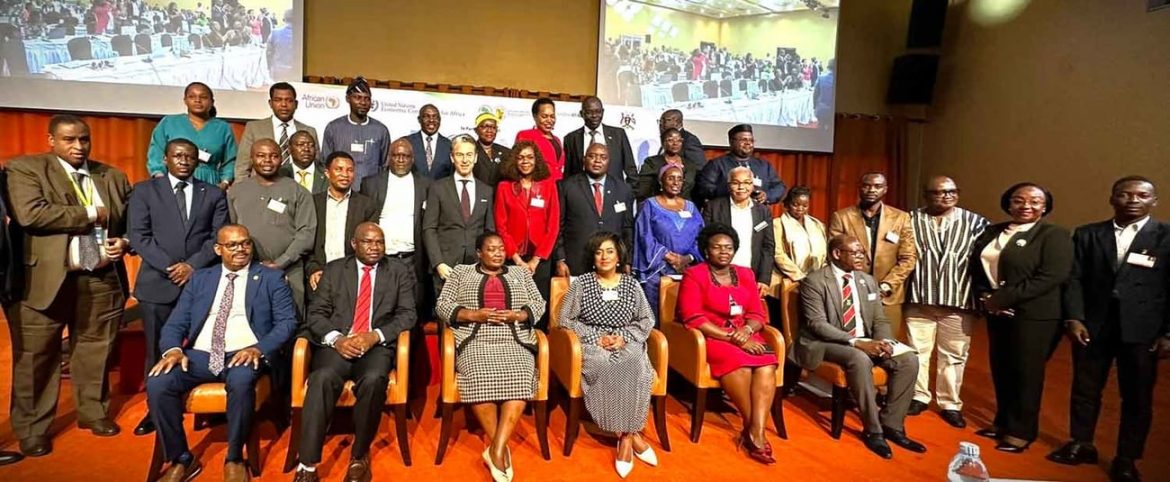African governments, international organizations and other development partners closed the Sixth Africa Climate Talks (ACT) in Kampala, Uganda, with a forceful call for COP30 to advance a just and inclusive global climate agenda.
Robinah Nabbanja, Uganda’s Prime Minister, opened the event, which took place under the theme “Rethinking financing and ambition for climate action, green growth and development in Africa: a justice issue,” with the aim of building African consensus ahead of the 30th Climate Conference in Brazil later this year.
The African Development Bank, a strong voice for climate action across the continent, joined with the African Union Commission, the United Nations Economic Commission for Africa, and the African Development Bank to host the talks in partnership with the Uganda Parliamentary Forum, the Pan-Africa Climate Justice Alliance, the Global Centre on Adaptation, UNICEF.
Over the course of two days, participants engaged in panel discussions and roundtables aimed at advancing reform and redesign of international financial systems to better meet Africa’s needs. The meeting closed on April 8.
Read also: Centre engages PWDs on disability-inclusive climate change policy review
Nabbanja, urged reform of the global climate finance system. “We cannot talk about development in Africa without tackling climate change head on,” she said. “We must rethink and redesign the financial architecture that supports climate action—not as charity, but as a matter of equity,”
Uganda’s prime minister emphasized the continent’s favorable demographics as both challenge and opportunity. “Africa boasts the youngest population. Seventy-five percent of the population of Uganda is between 0 and 35 years of age. This means we have to create millions of decent jobs. We must secure a future where our economies thrive without compromising our environment,” she said.
The talks offered African leaders and institutions a forum to call for greater fairness and global accountability. Hon. Jaqueline Amongin, Chair of the African Parliamentarians for Climate Action, stated: “Africa is bearing the brunt of a problem it did not create. There is no scenario in which this can be right, or acceptable. This is why the concept of climate justice is relevant now more than ever.”
Dr. James Kinyangi, Coordinator of the African Development Bank’s Climate Development Special Fund reaffirmed the institution’s commitment to support countries in developing ambitious Nationally Determined Contributions. The Bank Group extends support through initiatives such as the Africa NDC Hub that reflect countries’ unique challenges and aspirations. “This is a critical step towards ensuring that climate finance is not only about dollars and cents, but also about justice and equity.”
In Kampala, the Bank’s delegation engaged in technical discussions on the optimal role for multilateral development banks (MDBs) in addressing Africa’s climate finance gaps, enhancing adaptation efforts, and promoting a fair and inclusive transition. In partnership with the Global Center on Adaptation, the Bank Group hosted an event to showcase the achievements of the Africa Adaptation Acceleration Program, a joint initiative of the African Development Bank and the Global Center on Adaptation to mobilize $25 billion, over five years, to accelerate and scale climate adaptation action across the continent.
“Climate change could not be more relevant for UNICEF. Children and young people represent the next generation most affected by climate change, and for whom our advocacy and negotiation for justice is pivotal,” said, Alison Parker, Deputy Regional Director for Eastern and Southern Africa at UNICEF, which attended for the first time. She noted that the burden of climate change falls disproportionately on the youth.
Story was adapted from AFDB.
